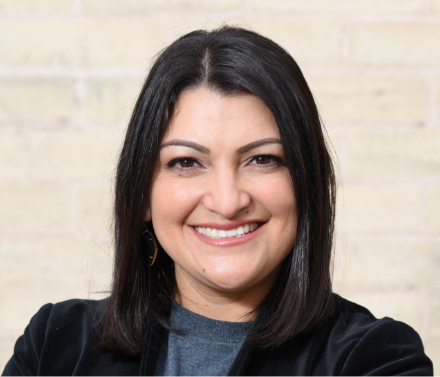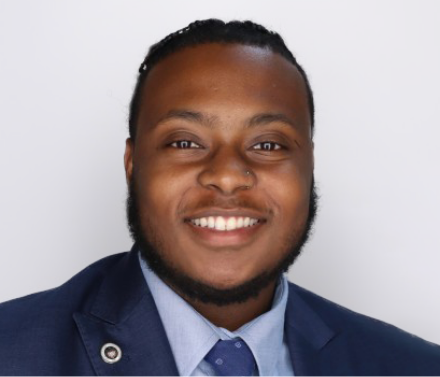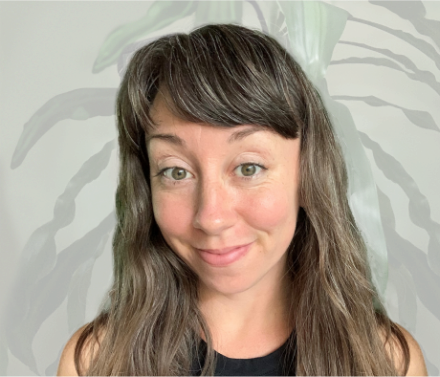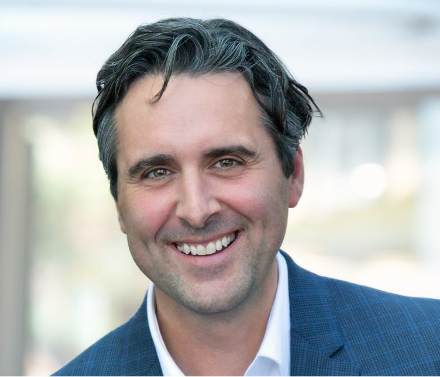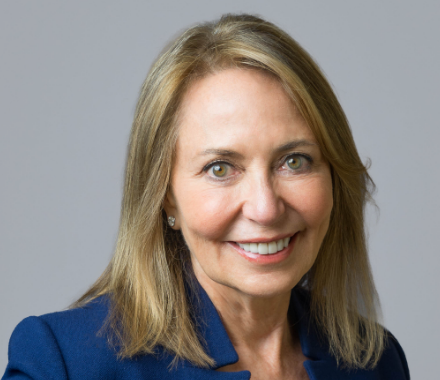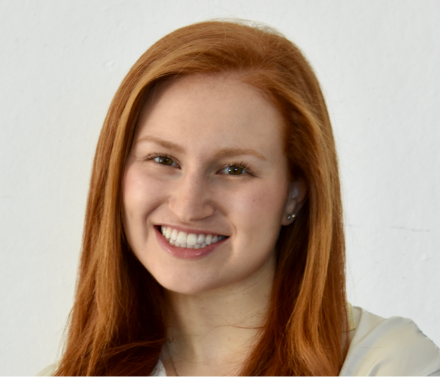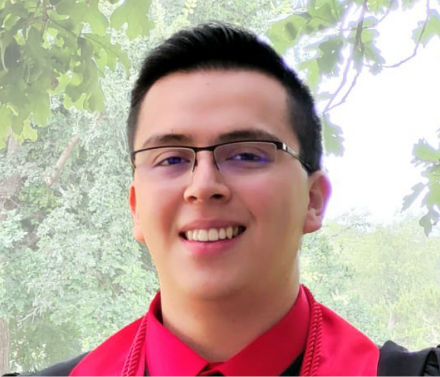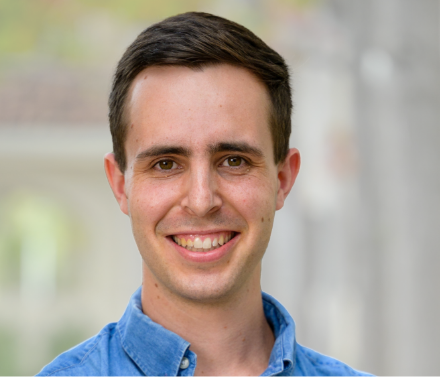IN THE PAST year with COVID-19, things have been harder than usual. The only thing you have control over is how you react. That’s how many students have moved through the school year. But I think it’s important for educators to consider how they can help students with what they’re going through. Specifically, how can faculty or administration help students meet challenges, adapt, and overcome these challenges.
We need teaching that’s more interactive, more off-script, where students can think independently and present their ideas and lead discussions.”
Education has always been closely tied with the concept of democracy, going back to the founding of the nation. I think it was Thomas Jefferson who said that a democracy is kept afloat by an educated electorate. In the modern day, education is more important than ever.
One key role education has to play in our generation is helping to build critical thinking skills so we can create a better democracy. We have all this information available—how are we going to filter through it? How are we going to use it most effectively to create change?
Each generation has new challenges and opportunities. Technology is probably one of the most all-encompassing changes that has happened in recent generations. It seeps into every part of what we do. It’s how we interact with other people. It’s how we get involved in social movements. It’s even how, in some instances, we interact with the economy.
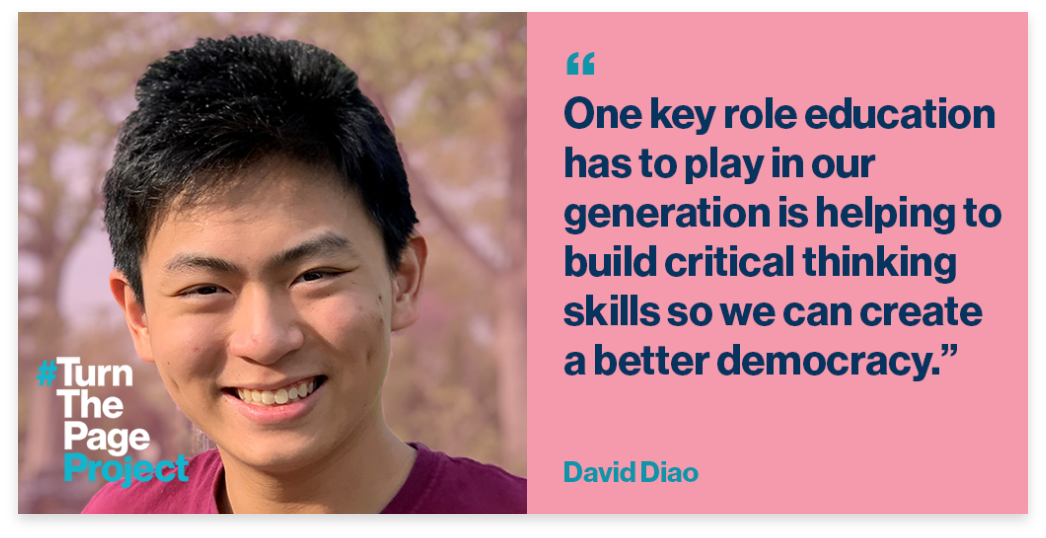
SHARE DAVID’S PERSPECTIVE!
It’s almost overwhelming how people are losing their attention spans, how they’re getting absorbed in their phones, the internet, and social media. We need teaching that’s more interactive, more off-script, where students can think independently and present their ideas and lead discussions—something like a Socratic seminar. There should be more focus on having students engage with other students in discussion, not just listening and passively taking it in. That’s really important because it cultivates the ability to think critically about an issue and present your opinion. But it also helps us hear what classmates have to say and then come together to build a more nuanced understanding of a topic or issue.
I wish we had more opportunities to get outside of the school environment and not only learn from books. Recently, I was able to go to a local town hall, and we learned a lot about policymaking. It gave a completely different perspective. It was centered in the here and now. Students should have a chance to get out of classrooms and into the real world and learn by actually experiencing different things. I think that’s really formative and valuable in giving students a sense of control over their lives and a greater sense of direction on where they want to go.
The biggest thing that people in power can do is listen to what young people have to say. I know a lot of students and community members, those affected by education and by these programs, who can help and lead in finding better policies. We probably have some of the most valuable voices in the discussion of what comes next. Listening is absolutely imperative if we want to make positive change.
